I collaborated for years in a publication that rated films from zero (run away) to five (masterpiece) and I wanted very much to found a cultural magazine that would not indoctrinate, that would review with professional competence and respect for readers, who I believe are free to consider our critics as wrong. Every year, some colleagues in the profession ask me for my own lists, those that I do not publish in my own medium, but I still refuse to rate the films. My lists are nourished by those films that I would recommend – and in the short distance, knowing the viewer, more accurately – and that for one reason or another made an impression on me.
Negative lists, of those films that I would not watch again, disappointed me, did not vibrate with my sensibility or did not appreciate for some more arguable reason, do not exist, because I simply would not recommend them, but they could include Promising Young Woman (Emerald Fennell) or The Story of My Wife (Ildikó Enyedi).
TITANE (Julia Ducournau, 2021)
Titane is one of the most impressive films of the year, the film by the director of Raw (2016) is not just a firework to shock and shock, but a profound work that reveals in images a clear reflection on the future of cinema. Physicality, violence and action, psychology and conventionality assault the spectator unexpectedly with new codes that are not based on the pyrotechnics of the image but on the depth of its discourse. The boundaries between genres and identities are blurred, as are the lines between the film genres into which we have divided films since the time of Thomas A. Edison.
Despite the explosion of action and proposals to digest, Titane is a humble and very brave film, which asserts its right to exist, and not to have to prove its affiliation, in a world obsessed with classification. To such an extent is it a fixation, that binary or non-binary falls short of all the cataloguing that is increasing every day, and that pretending not to exclude, what it does is to corset. We have to label in order to feel reassured and to know what we are facing, but Julia Ducourneau is not afraid to let reality (fictitious or possible) not fit into our compartmentalised brains. To be able to combine extreme violence with the rawest lyricism of love without instructions and leave us speechless, when our guts say yes and our mind has not yet received the stimulus that comes out of the screen, is only within the reach of those who made cinema great in the seventies.
WHAT DO WE SEE WHEN WE LOOK AT THE SKY (Aleksandre Koberidze, 2021)
The Georgian film, which won the Fipresci prize at the Berlin Film Festival, is a modern fairy tale in which a couple, pharmacist Lisa (Oliko Barbakadze) and footballer Giorgi (Giorgi Ambroladze), fall in love at first sight and are never reunited on their first date because of an enchantment that physically transforms them, making them unrecognisable to each other. The walks through the city of Kutaisi, the routines of the gardens, the kiosks, the children’s games, the narrator’s voice, abduct us as if we were looking at the sky and could see the face of the moon. In the everydayness of the humble homes of the protagonists or in the football matches or in the hard work of trying to make the small businesses prosper, we read the telltale signs of an absent, waiting story, which we all wish would resume but without giving up on the spell to end. Bereft of their skills and knowledge, Lisa and Giorgi begin a new life with the naturalness of one who consciously accepts that they live in a world where enchantments can happen and life is never certain. In an exercise of genuine detachment, both initiate and surrender to a destiny that we observe without guilt, hypnotised. The warmth of the 16mm fragments works as a magnifying lens that draws us even closer. The acceptance of the supernatural and its codes astonishes us as much as our capacity to empathise with them, in a cinematographic exercise that makes us happy accomplices.
EVOLUTION (Kornél Mundruczó, 2021)
After the Netflix release of Pieces of a Woman (2020), the Hungarian director returns to a magnificent screenplay by his wife, Kata Wéber, to offer us a film that traces the vestiges of the Second World War through three generations of the same family, to end up in present-day Berlin. Evolution reflects on the legacy and the unfinished business of the conflict, weaving in the intimate with the wickerwork of history, from a concentration camp to a multi-ethnic high school in the 21st century. Without solemnity or speeches, using metaphors such as water, which sweeps, cleanses and flows through time and space, Wéber and Mundruczó ask themselves in this triptych about what we have learned and about the hope for the new generations, the challenges facing the construction of an identity in a new country and a different culture. Padmé Hamdemir, Annamária Láng, Lili Monori and the talented and charismatic Goya Rego star in a film where Eva, Lena and Thomas (grandmother, daughter and grandson) live more or less consciously with the weight of their dramatic past.
Kata Wéber wrote the story, which begins in Hungary in 1945 and was based on a play, drawing on her own mother and the accounts of Jewish friends who lived through communism or emigrated to Germany. The first of the three stories, without dialogue, of a granite-like dryness, forces us into a sensory surrender rewarded by the surreal drift of the images in a kind of birth or rebirth that closes the tragedy and opens the door to a post-war period of uncertainty, in which the world will be politically divided for more than forty years. In the other two stories, also harrowing in their own way, the protagonists will win us over, with Lena’s thread running between her elderly mother in Budapest and her teenage son in Berlin. She is the link and the balance, she preserves the memory of the past and has the possibility of seeing the future embodied in Thomas, the unconscious heir of a tradition, who will in turn face a conflict characteristic of our times, a cultural-religious clash rooted in the depths of our humanity.
COMPARTMENT N0. 6 (Juho Kuosmanen, 2021)
The story of a young Finnish archaeologist who, the morning after a night of love, has to leave by train for the archaeological site of Murmansk, won the Grand Jury Prize at the Cannes Film Festival. In this road movie by the director of The Happiest Day in the Life of Olli Mäki, which meets all the requirements of the genre, Laura (Seidi Haarla) must travel in the same compartment as Ljoha (Yuri Borisov), initiating an impossible coexistence between two completely opposite beings. What critic Peter Bradshaw called a Finnish-style Before Sunrise is a film that grows before our eyes as the immense exercise in meltdown and empathy unfolds. Based on the novel by Rosa Liksom, Compartment No. 6 is a wintry story in which the goodness and personalities of both protagonists make for a gripping interplay, as we witness a transformation that defies convention and which Kuosmanen knows how to make evident in gestures, dialogue and even in the physical appearance of his protagonists. The forcefulness of a story of these characteristics, with tough, strong and emotionally armoured characters, who negotiate with loneliness and their own limits, borders on sentimentality, in an exercise of authenticity that seduces us until the last frame. The last scenes, as they approach their goal of being able to examine the petroglyphs, include the landscape as a dramatic element that in absentia has been the driving force of their story.
WHEEL OF FORTUNE AND FANTASY (Ryûsuke Hamaguchi, 2021)
The three stories that make up this film show that writing and observation elevate images to infinity, with an absolutely proportional and admirable delicacy and expressiveness, Hamaguch – which won the Silver Bear at the Berlin Film Festival – convinces us that chance is an inexhaustible narrative material, but as fragile as nitroglycerine. The small lives that interweave and show in their daily vicissitudes a glimmer of possibility, like a potential for redemption, appear small, elegant, ready to remain in their small comfort zones or to launch themselves into the most risky seduction. Chance, misunderstanding and the most singular eroticism unfold in a triptych starring slant-eyed Rohmerian women. La roulette is amusing, at the same time as it makes us feel embarrassed or uncomfortable, but its protagonists transmit as much truthfulness as it does truthfulness. Melancholy permeates a film of intense dialogue and decaffeinated existential angst that verges on psychodrama in some episodes.
THE WORST PERSON IN THE WORLD (Joachim Trier, 2021)
The French title of the film, as it premiered at the Cannes Film Festival, Julie (en 12 chapitres), gives us a better idea of its nature. The young Julie (superb Renate Reinsve, awarded Best Actress at the festival) is portrayed over several years, from university, where her fickle professional vocation leads her to change from one to another, to an amusing maturity, through intimate, amorous, sexual and family experiences. Julie grapples with her own past that she must process in order to move forward, represented in her relationship with her father, her creative yearnings that she seeks to channel, and her relationship with men, in which she also struggles with desire as complex as it is uncomfortable, forcing us to make constant choices and renunciations. In a precise tone that only at the end drifts towards seriousness – fortunately, avoiding solemnity – and the appropriate distance, marking his own playing field with a sense of humour and irony, the director of Thelma (2017) imbues the female universe with a very estimable closeness, as well as with knowledge and respect, without ever drawing a superficial portrait or falling into the clichés of the coming of age.
Reinsve’s chemistry with Oslo, August 31st‘s talented lead, Anders Danielsen Lie (Aksel), offers priceless sequences in a film that lasts two hours and is short. Julie travels through Oslo in love, upset or lost, turning the city into a battlefield, playground or amusement park that empathetically accompanies her, opening up to her emotions and desires. Trier knows how to masterfully use this resource, which reaches its climax in a decisive encounter in her life, in which the world literally freezes and, true to her feelings, Julie runs in search of what she most desires. We also fall in love with her and want to follow her adventures forever, while reflecting ourselves as in a mirror that exposes all our doubts and contradictions, as in the best Woody Allen.
THE POWER OF THE DOG (Jane Campion, 2021)
The director of Bright Star adapts Thomas Savage‘s (1967) novel of the same title, starring the Burbank brothers, George (Jesse Plemons) and Phil (Benedict Cumberbatch) heirs to a ranch in 1920s Montana that their parents from back East have left for life in a Salt Lake City hotel. The entrance into their lives of widow Rose (Kristen Dunst) and her son Peter (Kodi Smit-McPhee) will reveal the rifts between the siblings and the secrets Phil. George is a limited man, a college dropout, but a methodical manager, while his brother has a brilliant intelligence that contrasts with an exalted defence of the most stale values of manhood in the last throes of the West as depicted in legends and literature. A difficult acceptance of one’s homosexuality and a stubborn self-exclusion from all surroundings outside the huis clos of the ranch and its “secret gardens” makes Phil a stranger in his own home until a glimmer of humanity makes the tormented rancher more vulnerable than he realised. Campion directs an admirable, austere film, with silences and sounds that chill the blood, while his actors deliver a recital from the gut.
The Power of the Dog is an excellent adaptation of the spirit of Savage’s work, translating its complex psychological study to perfection. The director masters the use of landscape in her films, and here she has the material to do so in an outstanding way, as in showing the isolation of the house, a metaphor for the family and Phil in an environment surrounded by mountains, threatened by unstoppable civilisation.
BENEDICTION (Terence Davis, 2021)
Jack Lowden and Peter Capaldi play the British poet and pacifist Siegfried Sassoon as a young and old man in this biopic whose screenplay won an award at the last San Sebastian Festival. Sassoon’s life journey was complex and deeply committed, confronting his government during the First World War and also society, vindicating his sexuality, in a life arc that finally led him to surrender to the Christian faith. Ellipses, archive images and an unforgettable last shot, which tears us deeply, alternate with the stylistic resources of a great master. The film, which is outstanding among the films we have seen this year, includes episodes from the poet’s life, sexual partners, intellectual friendships, and an intense social life that is portrayed faithfully and without stylisation. The millions of war dead are as constant a presence in the film as the ballroom dancing, and so well are the two spheres blended that Davis leaves us body shattered by the effectiveness with which he handles his cards.
Benediction is more of a 137′ experience than a film, disguised as an innocent biopic, an experience of beautiful and piercing melancholy, which does not allow us to recreate either the pain or the beauty it conveys. The director of A Quiet Passion prefers to depict the man and his conflicts, rather than the poet and artist, even though his work pervades the film and we hear some of his poems in voice-over. Throughout Benediction, Sassoon encounters the singer Ivor Novello, artists, intellectuals and Hester (Kate Phillips), the woman he chooses as his redemption, and the dialogue flows both intensely and lightly, so that we wish we could pause and savour it better.
VORTEX (Gaspar Noé, 2021)
The director of Irreversible directs Dario Argento and Françoise Lebrun in a film that we could consider the reverse of Amour (Hanecke, 2012) and which I would choose. After suffering a stroke that almost cost him his life in 2019, the Argentinian director decided to give up drinking and also direct this film, a powerful reflection on ageing, identity and death. The process of physical and mental decay of an elderly couple who, at the beginning of the film, live alone and continue to carry out intellectual tasks: he a writer and she a psychoanalyst, is filmed with crudeness, like chapters in a manual. Both are descending the rungs of their peculiar scaffold, losing their faculties. She, who used to heal minds, with dementia; he, a scriptwriter, seeing his work disappear at the hands of his wife, who can no longer distinguish what she reads. Following them with a striking closeness and an experimental style, with a split screen although they share a scene, it is impressive that it makes us forget that we are watching a fiction film, Vortex is a mirror in which the spectator contemplates himself as a ghost of future Christmases.
https://www.youtube.com/watch?v=ahTWUQ2R5Q8
Noé’s reflective maturity grips our throats and makes us want to stop the course of events, because what unfolds on the screen is the tragedy of life, unstoppable but always dignified, because the director’s gaze wants it that way, perhaps that is why the vision of this couple still dragging their old battles, as in Jacques Brel‘s song, hurts us more. Separate but united lives, the consequences of which are made clear by their son and grandson, impotence, responsibility and mistakes. Vortex is a dazzling cinematographic exercise, heir to the best masters, without compassion or traps, where physical decay is painfully accompanied by the will to live. As its protagonists say: Life is a dream within a dream.
ESPÍRITU SAGRADO (Chema García Ibarra, 2021)
After his first short film, El ataque de los robots de nebulosa-5 (2008), we were already longing for this portentous The Sacred Spirit (2021), because it was only a matter of time before Chema García Ibarra unfolded before our eyes a feature film imbued with his highly personal style. With a sustained gaze that neither underlines nor debases, the director from Elche is in the honour division of those who sincerely serve a universe of his own that needs no grooming or added crudeness, certain that his camera will show what is most revealing, contradictory and provocative. The human zoo that he rescues from Carrús, the poorest neighbourhood in Spain, resists caricature, because the lens is a pure mirror of ugliness, ignorance and naivety, but also reveals the profound connection between any class, through one of the most primordial concerns: the mystery of existence and the desire for transcendence.
https://youtu.be/br45Nu8aHWA
In The Sacred Spirit the concepts of up and down, inside and outside, space and time are only mental spaces, to create the mystery of the one thing, as preached by Hermeticism, even if it is divided into good and bad, cops and bad guys and true and false. The film – which won a special mention at the Locarno Festival, a prize for art direction for Leonor Díaz at Mar del Plata and the Fipresci prize at the Miskolc festival – wraps a powerful and seductive proposal in folklorism, plagued by a singular sense of humour that constantly questions us, and demonstrates the perspicacity and intentionality of García Ibarra, whose firmness at the wheel of this sacred Spirit does not allow the slightest deviation in tone, throughout the whole of the film. The photography of Ion de Sosa (director of Sueñan los androides, 2014) transforms kitsch into a document, the brutalism of VPO into a prelude to the extraordinary and the stainless steel of a bar into a metonymy of a way of life. Bibelots and sacred or esoteric iconography, transcended only by the eventual tribal will, move away from the decorative power as signifiers, granted to them by creators with more pretensions and less daring, to become meaning in their own right.

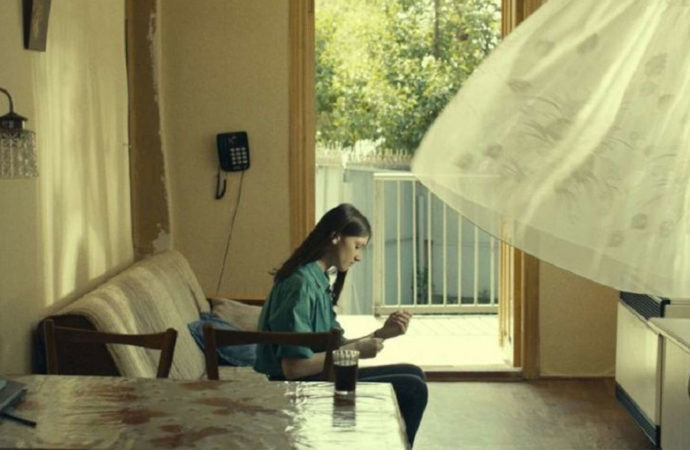

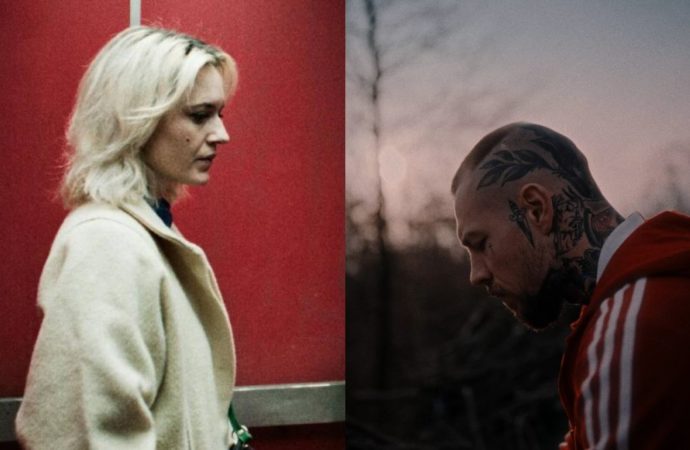
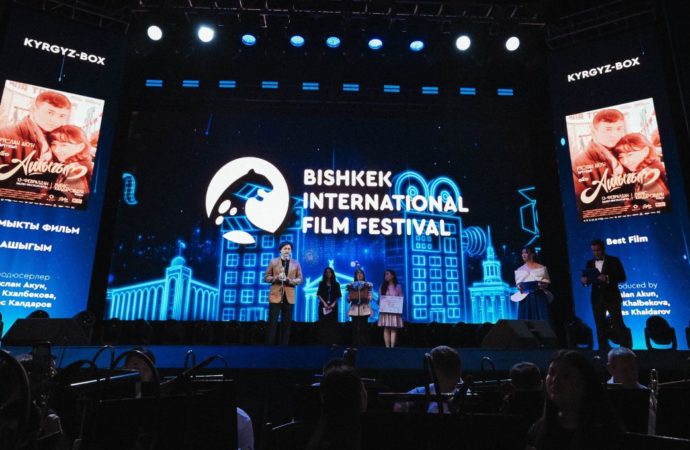
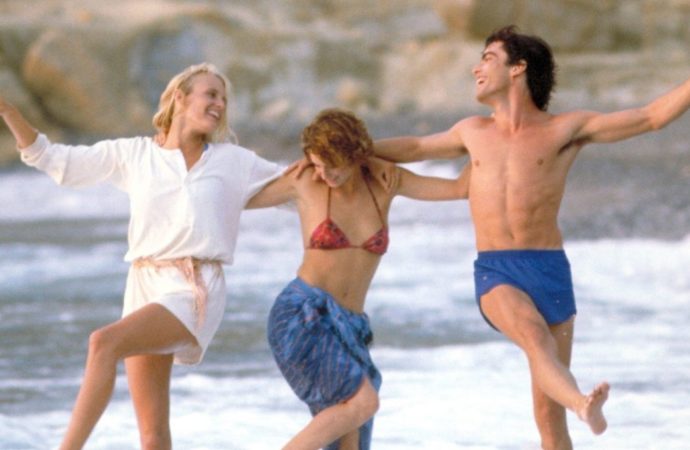
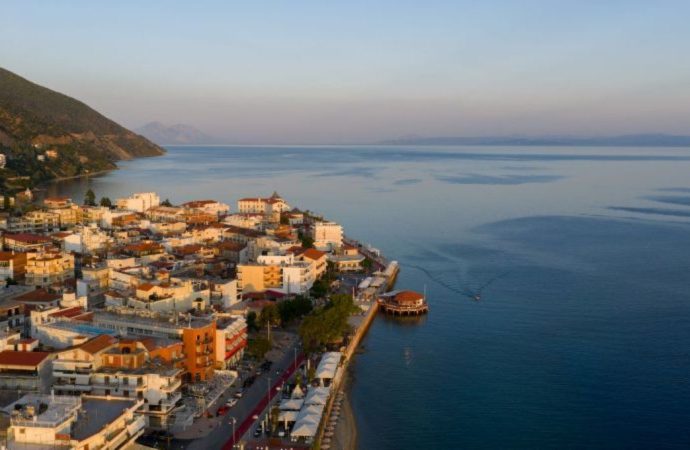
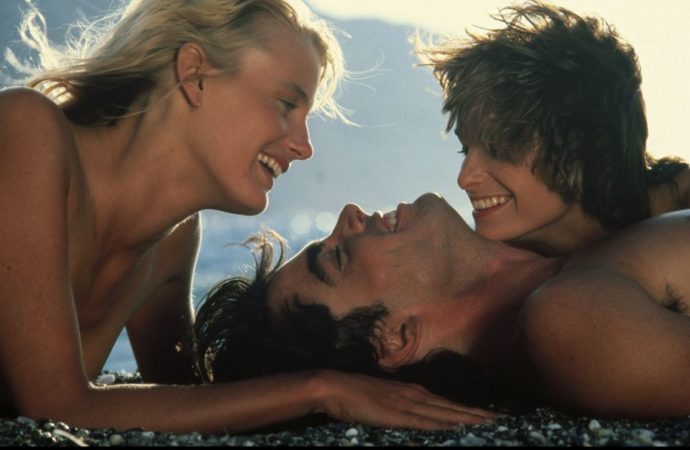

No one has posted any comments yet. Be the first person!